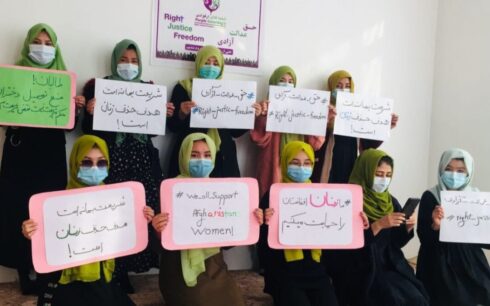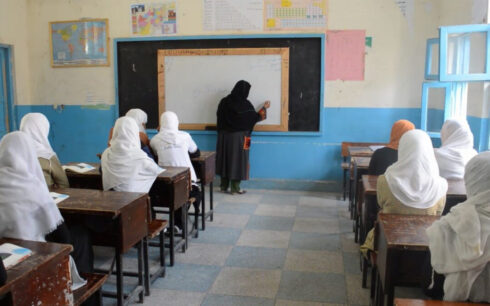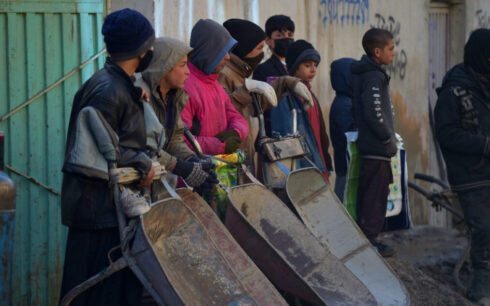The Taliban’s decision to ban women from working in non-governmental organizations (NGOs) in Afghanistan has triggered widespread global concern and led to operational disruptions for several major humanitarian agencies over the past year, including the Norwegian Refugee Council, Save the Children, CARE, and the International Rescue Committee.
The United Nations Assistance Mission in Afghanistan (UNAMA) subsequently instructed its staff, including male employees, not to come to work in response to the Taliban’s directive.
Despite international criticism, the Taliban has maintained and intensified its ban on women working in NGOs, adversely affecting women’s participation in various sectors, including humanitarian aid.
“We used to work, but now we cannot. There is nothing right in our lives; life is in a bad situation. We hope the situation in Afghanistan will improve so that our lives can also improve,” Fawzia, a resident of Farah province, said.
The United Nations Coordination Office reported that the Taliban’s restrictions have not only limited women’s access to assistance and services but have also had a negative impact on the education system. The ban has resulted in the complete halting or restriction of activities for 151 organizations, most of which were led by women, affecting women’s involvement in humanitarian aid efforts.
“The situation in Afghanistan is bad; women cannot work. We went to Iran but were deported again. There is unemployment here. We hope the situation in Afghanistan improves soon,” Zahra, a resident of Herat, said.
The United Nations, along with various countries and global leaders, has condemned the Taliban’s decision as illegal and a violation of fundamental rights. UN Secretary-General spokesperson Stephen Dujarric emphasized the importance of women’s presence in UN humanitarian operations, describing the ban as a violation of the principle of non-discrimination.
In response to the ban, high-ranking UN officials, including Deputy Secretary-General Amina Mohammed, visited Kabul in January to address women’s rights and engaged in discussions with the Taliban leadership in Kandahar.





